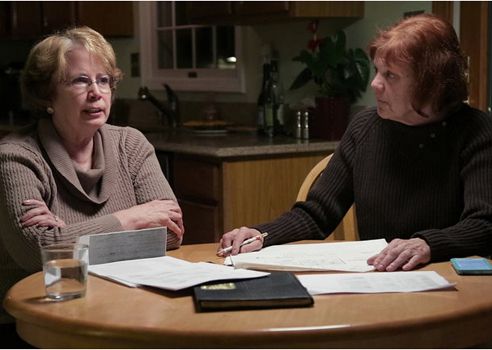Reading time: Less than 1 minute
Increase your vocabulary and you’ll make your writing much more precise. That’s why I provide a word of the week. Today’s word: doughty…
I don’t watch much TV but I was sick with food poisoning last week and that was enough to keep me in bed for two days. What else could I do but comfort myself with Netflix?
I figured the true crime drama The Keepers would keep me engaged and it did, although I’m not convinced it was worth the more than seven-hour investment of time. Good thing I had nothing better to do. The story of the murder of an American Catholic nun in the 1960s and a sex abuse scandal (that may or may not have been related to the murder) was mostly grim and distasteful. But the whodunnit aspect (never revealed) kept me hooked.
In subsequently reading a New York Times review of the program, written by Mike Hale and headlined, “True Crime and Plenty of it,” I also uncovered my word of the week, doughty. Here is how the writer used it:
The Cesnik story, in contrast, is a noirish whodunit, and Ms Hoskins and Ms Schaub, [pictured above] despite the grimness of the material, are doughty, humorous presences.
I have encountered the adjective doughty many times over the years but suddenly realized I had no idea what it meant. My dictionary tells me it means “persistent” or “marked by fearless resolution.” But the etymology of the word is even more interesting. It comes from the Old English dohtig meaning, “competent, good, valiant,” from dyhtig meaning “strong,” and related to dugan, meaning “to be fit, be able, be strong.”

